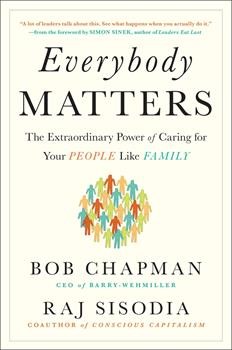Bad Apples

Bad Apples
I have two questions. One: “Are Democrats immoral, self-serving entitlement junkies?” Two: “Are Republicans greedy, Godless, self-serving criminals? If you answered “yes” to either of these questions — or even if you had to stop and wrestle with it for a bit — then this story was written for you!
On May 25, 2020, Derek Chauvin, a 44-year-old Minneapolis police officer, ruthlessly murdered 46-year-old George Floyd by kneeling on Floyd’s neck while he was handcuffed and lying face-down in a street. Meanwhile, three other policemen looked on without intervening; whether their actions were driven by hatred of Floyd or fear of Chauvin is still unknown. What followed was a level of public outrage rarely experienced. Riots broke out across the country. Innocent people lost their businesses to mob-instigated arson, and public sentiment turned against the police in general.
I would not for even a second, minimize the heinous nature of George Floyd’s death. It was murder of another human being by a deranged individual. What I would like to do is make a calm, rational observation about our reactions to that death and where the consequences of those reactions have landed us. Specifically, I’d like to consider how the “Defund the Police” movement has devastated some American cities and put at-risk populations in even greater peril. More broadly, I’d like to ask why we are driven to emotion-based reactions, especially in negative situations.
First, I hope we can agree that Derek Chauvin was no normal person. He was a psychopath. In fact, I would step out on a limb and conjecture that as many as ten percent of all police are mentally unbalanced. But, in all fairness, as many as ten percent of all clergy are perverts, ten percent of all Democrats are immoral, self-serving entitlement junkies, ten percent of all Republicans are greedy, Godless, self-serving criminals, and ten percent of all marketing professionals (a profession I practice) are pathological liars or worse. In short, ten percent of all humanity is seriously twisted.
Now, we could argue that my figure is off in one direction or another. The New Testament model was 8.3 percent. Of Jesus’ twelve disciples, only Judas Iscariot was willing to sell him out for a profit. The Gallup organization informs us that one bad experience requires eight good experiences to offset it, so they’re leaning towards 12.5 percent, but that’s not the point. The point is that some small fraction of us is irreparably bent.
My question is, “Why are we focusing on that ten percent and ignoring the other ninety percent?” If the odds of winning the latest lottery were nine out of ten, who would not set aside their qualms about gambling and purchase at least one ticket? Even if ten percent of us cannot be trusted, that leaves an overwhelming majority that fall into the “trustworthy” category.
So, why is our focus drawn so strongly to what’s wrong? Last week, my favorite coffee shop got my order wrong, and I would have had to wait in line to get it corrected. Should I ignore the nine orders they’ve gotten right over the previous weeks and quit going there over that single bad order? I admittedly considered that very scenario when my breakfast tacos showed up without the requested cheese and avocados, but when emotions rule, we never, ever get it right.
Back to those corrupt police: I know of at least four major cities across the country (one right here in Texas) that significantly defunded their police beginning in 2020 and are now suffering the consequences of radically diminished police protection. And guess what? Of the few remaining officers, and the new hires, ten percent of those human beings are still bad apples! There has been no abatement of violence since cities started reducing the police funding. That’s because knee-jerk reactions, no matter how hideous the cause, can never amend human nature and bring about meaningful change. Even worse, those cities have unwittingly made it easier for the demented ten percent of the remaining population to get away with their evil deeds.
Secondly, why are we prone to categorize people — especially those with whom we disagree? Unquestionably, that need to categorize people and actions is in our genetic makeup along with the tendency to over-react to negative events. When our prehistoric ancestors were running through the jungles in search of food, the “same is safe; different is dangerous” concept was hard-wired into the Limbic sections of their brains and kept them alive at least long enough to procreate and continue our lineage.
We’re no longer chasing small animals for our dinner while avoiding bigger animals who want to make us their dinner. We are supposed to be educated. So, how did we move from the understanding that a certain small percentage of individuals within a specific category are bad, to the assumption that everyone within that same category is bad? How is that mindset any different from the sheet-wearing morons of the previous century who based their assumptions on skin color?
Unless we learn to reign in our emotions and think rationally, even under the most volatile conditions, we’re setting ourselves up to be victims of charlatans would prey on our emotionalist thinking and manipulate us even further.
Unless we recognize that the ten percent do not represent the whole, we are doomed to repeating the actions of those whose thinking we have previously condemned.
Unless you email me and arrange to discuss this article over coffee or something more substantial, I will never understand your perspective on the issue.
 Email me at guy@lawsoncomm.com. I’ll buy you coffee and we can trade ideas. Who knows? Maybe we will even discover something we didn’t already know.
Email me at guy@lawsoncomm.com. I’ll buy you coffee and we can trade ideas. Who knows? Maybe we will even discover something we didn’t already know.
![]()
Human beings are poor examiners, subject to superstition, bias, prejudice, and a profound tendency to see what they want to see rather than what is really there.
— M. Scott Peck

Did someone forward this newsletter to you after reading it themselves? Don’t settle for that!
CLICK HERE
to get a fresh, unused copy of this newsletter sent directly to you every Sunday morning. If you decide it stinks, you can always unsubscribe.
Everybody Matters
— Bob Chapman

I recommended this book three weeks ago and you haven’t read it yet so I’m recommending it again. If you like Simon Sinek, and especially if you liked “Leaders Eat Last”, you’re gonna love this book. Bob Chapman is the guy Sinek wrote “Leaders Eat Last” about and he’s the real deal. His companies exist primarily to make the lives of their employees better, not so they will work harder but just because they’re human beings and worth lifting up.
A meeting of great minds who think alike












